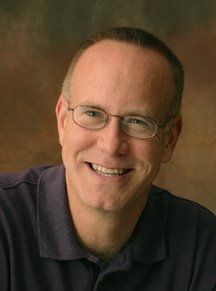Fred Peatross recently interviewed me for his eFriends of Abductive Column:
Stephen Shields is the founder of faithmaps.org and the moderator of the faithmappers' online discussion group. Stephen is also a Manager with USA TODAY, formerly a bi-vocational pastor with Brian McLaren, and a frequent contributor to Next-Wave Magazine. Stephen received a M.Div from Grace Theological Seminary and lives with his wife Bethany and three daughters - Michaela Siobhan, Skye Teresa, and Alia Noelle - in the Baltimore- Washington corridor.
I guess the first thing everyone would want to know is what was it like pastoring with Brian McLaren?
One of Brian's characteristics that I have appreciated the most is how empowering he is towards others. Before I went on staff at Cedar Ridge in 1999, I had been working there in a lay capacity for 10 years. Brian opened up doors for me to lead the small groups ministry, to sing, to act in the drama troupe, to speak on Sunday mornings, etc. It was a great season and I will always be grateful for his role.
You've been engaged in the emergent conversation for sometime now, can you tell us why?
There are a couple of resonances that I have with the emerging church. As I've commented elsewhere, when I was in seminary, I walked away with something of the impression that the evangelical church pretty much had every theological i dotted and every doctrinal t crossed. Over the years, my own personal theology - on the other hand - has shifted from encyclopedia to outline. There are definite points on the outline that are known, but there is much unknown that's between the bullet points. In the past, I've used the faithmap metaphor to describe this. As with a map, there are known points of reference and there is much that is unknown. Moreover, the map is not the same as the reality and the map is used to go somewhere. The map is not the point.
It has also seemed to me that Evangelical Christianity - and I do consider myself an Evangelical - has perhaps at times truncated spiritual transformation to mere information transfer. Spiritual change and activity certainly involve propositions, but they also transcend them. This is some of the thinking behind the term transpropositionality (for an understanding of this word click here) that the faithmaps discussion group formulated some years ago.
These are the main reasons that I have participated in the emerging church conversation.
What role has blogging played among the Christian community? How is it affecting the conversations and movements within the body of Christ?
The declining cost of information that's been precipitated by the internet is fascinating to me. Society changes as data becomes cheaper. The advent of publishing helped disrupt the existing ecclesial authority structure of the 16th century Catholic church and you have the Protestant Reformation. Television and Radio brought the cost of information down further. Now with websites, email, instant messaging, and blogs the cost of info declines even further still. I was recently involved in a controversy between two countries and two major emerging church organizations that began and largely ended within about 72 hours. It's lifespan was so short because of the immediacy of online communication. It's not difficult to imagine that in another age such a controversy could have spanned the course of 3 years rather than 3 days. Another impact that the declining cost of information is having on the church is that whereas 200 years ago (in North America at least) your primary source of theological information was your pastor, today if you're curious about positions and reasons for a particular theological position, with a little google finesse you can easily find more information that you can probably take the time to read.
But this is also more difficult for the church because whereas in the past insularity might have precipitated a premature certainty, the onslaught of information, arguments and variant viewpoints calls for increased humility. However, truth is ultimately the winner when humility is combined with freely available information.
Is Truth relative or absolute? Or both? And if both- which flows from which? Which is the chicken and which is the egg? What is the criterion for determining Truth's certitude?
You ask a blatantly philosophical question so please forgive me if I wax blatantly philosophical! It's your last question which is the most important, in my opinion; but I'll answer in order. Truth is both relative and absolute. Any reader of this interview will take a specific amont of time to review all or part of it - that measure is absolute and measurable. But if they are bored with all this epistemological droning, the length of reading time will seem interminable. If - on the other hand - they are excited about such philosophical musings, the length of reading time will seem to pass quickly. The relative flows from the absolute. Your criterion is a bit more sticky. An anthropocentric epistemology yields only subjectivism and uncertainty. Man, as Schaeffer used to say, is an insufficient reference point. His perspective is finite. However, a faithful theocentric epistemology allows for certainty because its reference is the infinite God. But adopting such a stance is very humbling because it's not based on the knower's capacity for knowledge; it's based on God's knowledge and faith in Him.
If anyone is still reading, Brian McLaren and I had an interesting email discussion some years ago on "knowing." He's given me permission to post here.















